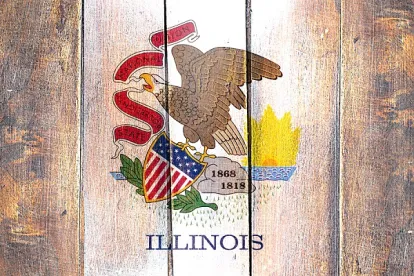The Illinois Legislature recently passed a bipartisan bill, available here, that seeks to significantly amend the Illinois Freedom to Work Act (820 ILCS § 90) and impose restrictions on the use of non-competition and non-solicitation (employee and customer) restrictive covenants for Illinois employees. The bill is expected to be signed by Governor Pritzker, and would take effect on January 1, 2022. The bill is not retroactive and only applies to restrictive covenants entered into after January 1, 2022.
Salary Requirements
The bill would prohibit employers from entering into non-competition agreements with employees who earn $75,000 per year or less and would also prohibit employers from entering into non-solicit agreements with employees who earn $45,000 per year or less.
For non-compete agreements, the salary threshold amounts would increase every five years by $5,000 until January 1, 2037, when the amount would equal $90,000. For non-solicit agreements, the salary threshold amounts would increase every five years by $2,500 until January 1, 2037, when the amount would equal $52,500.
Notice Requirements
The bill requires that employers advise employees to consult with an attorney before entering into a non-compete or non-solicit agreement. Employers must also give employees at least 14 days to review the agreement and decide whether to sign. Employees have the option of signing the agreement before the 14-day period has ended.
Clarifications
The bill makes a number of important clarifications to existing Illinois law:
First, the bill provides that a covenant not to compete or solicit is illegal and void unless (1) the employee receives adequate consideration; (2) the covenant is ancillary to a valid employment relationship; (3) the covenant is no greater than is required for the protection of a legitimate business interest of the employer; (4) the covenant does not impose undue hardship on the employee; and (5) the covenant is not injurious to the public.
In determining whether the employer has a legitimate business interest, the bill explains that “the totality of the facts and circumstances of the individual case shall be considered.” Factors to be considered in this analysis include, but are not limited to, the employee’s exposure to the employer’s customer relationships or other employees, the near-permanence of customer relationships, the employee’s acquisition, use, or knowledge of confidential information through the employee’s employment, time restrictions, place restrictions, and the scope of the activity restrictions. Each factor’s importance will depend on the specific facts and circumstances of each case.
Second, the bill defines “adequate consideration” that is sufficient to support a non-compete or non-solicit restriction as follows: (1) the employee worked for the employer for at least 2 years after the employee signed an agreement containing a covenant not to compete or a covenant not to solicit; or (2) the employer otherwise provided consideration adequate to support an agreement to not compete or to not solicit, which can consist of a period of employment plus additional professional or financial benefits or merely professional or financial benefits adequate by themselves.
Finally, the bill provides that while a court may refrain from “wholly rewriting contracts,” it may decide to reform or sever provisions of a covenant not to compete or not to solicit rather than deem the covenant unenforceable. In determining whether reformation is appropriate, courts may consider factors such as the fairness of the restraints as originally written, whether the original restriction reflects a good-faith effort to protect a legitimate business interest of the employer, the extent of such reformation, and whether the parties included a clause authorizing such modifications in their agreement.
COVID-19
The bill prohibits employers from entering into restrictive covenants with employees who lost their jobs due to the COVID-19 pandemic or under circumstances that are similar to the COVID-19 pandemic unless enforcement of the covenant not to compete includes compensation equivalent to the employee’s base salary at the time of termination for the period of enforcement minus compensation earned though subsequent employment during the period of enforcement.
Remedies
If an employee prevails on a claim filed by an employer seeking to enforce a covenant not to compete or a covenant not to solicit, the employee can recover all costs and reasonable attorney’s fees from the employer regarding such claim. A court or arbitrator may also award appropriate relief. The bill does not address what will happen in circumstances where a court partially enforces or reforms a covenant not to compete or a covenant not to solicit.





 />i
/>i

